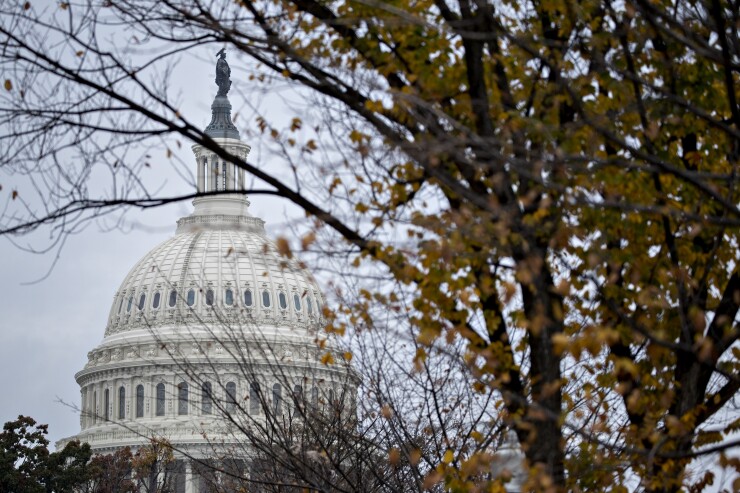As both the House of Representatives and the Senate move closer to final tax reform bills, employers are keeping a close eye on how it will affect retirement plans.
Right now, 401(k) plans won’t be touched, but that could change. The whole tax reform process is “very fluid. It changes day-by-day,” says Erik Carter, senior financial planner at financial wellness company Financial Finesse.
The Senate Committee on Finance’s latest markup of the Tax Cuts and Jobs Act eliminated the section that would have immediately taxed income set aside in non-qualified deferred compensation plans, which are used by employers to help fund the retirement of higher earners. The House bill had initially included the same proposal but cut the provision before it went before the House Ways and Means Committee.
The other provision that hit the cutting room floor was the proposal that any catchup contributions made after age 50 be funneled into a Roth plan instead of the employer’s traditional 401(k) plan. Neither bill includes this language, says Robyn Credico, senior retirement consultant at Willis Towers Watson. The Senate bill does include a provision that would allow individuals to contribute $9,000 in catch-up contributions instead of $6,000, which is the current limit.

The Senate bill includes language that would make the 403(b) and 457 contribution limits, the amount a person can set aside on a tax-deferred basis, the same as a 401(k) plan, says Credico, but a prior proposal to apply a 10% early withdrawal penalty to governmental section 457(b) plans was stricken in the latest version of the bill.
Carter says that, currently, there is a huge advantage to doing a 457(b) over a 401(k) plan, but if government employees are not able to max out both their 457(b) and 401(k) plans, and if there was a 10% early withdrawal penalty on money set aside within a 457(b), it would make 457(b) programs not as desirable.
“If you look at developments in both the House and Senate, things are moving in a positive direction, which is to say things both rumored and, in some cases, actual that would have been bad for retirement plans and savings have either not happened or have been pulled back,” says Nevin Adams, chief content officer for the American Retirement Association.
He agrees with Carter in that just because both bills are fairly favorable to retirement plans currently, that could always change as the two houses of Congress try to marry their two bills moving forward.
“We are keeping an eye on them,” Adams says. “At some point, tax reform is all about generating revenue and a lot of things that make retirement plans important to people and provide incentives, the government looks at them and says, that’s money.”
He says that his organization was glad to see the Senate drop its mini-Rothification proposal that would have required all individuals earning $500,000 or more annually to make any catch-up contributions into a Roth.
That type of policy hurts small business owners the most, he says, because there are always lean years, periods when people don’t have enough to save for retirement, which make catch-up contributions critical to people who want a secure retirement.
He adds that the “catch-up contribution is still important and throwing out $500,000 today, who is to say they won’t change it to $100,000 in a few years because you opened that door.”
Steve Wojcik, vice president of public policy at the National Business Group on Health, says that “it’s hard enough to get people to save for retirement, so the more complicated you make it for people and, especially for people who may not have saved in their earlier years, you don’t want to put up additional complications or barriers.”
One of the biggest expenses for people in retirement is health care, so his organization is against changes to the tax code that would make it harder for people of all income levels to save for retirement.





